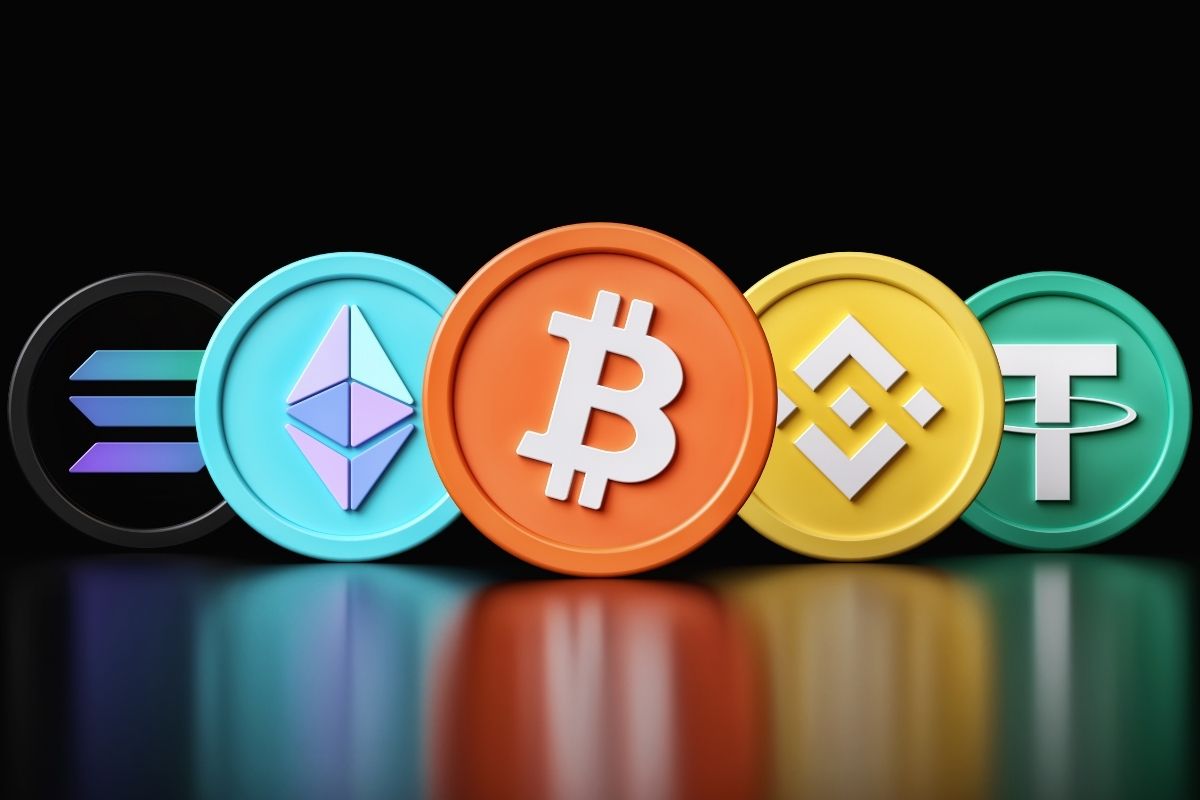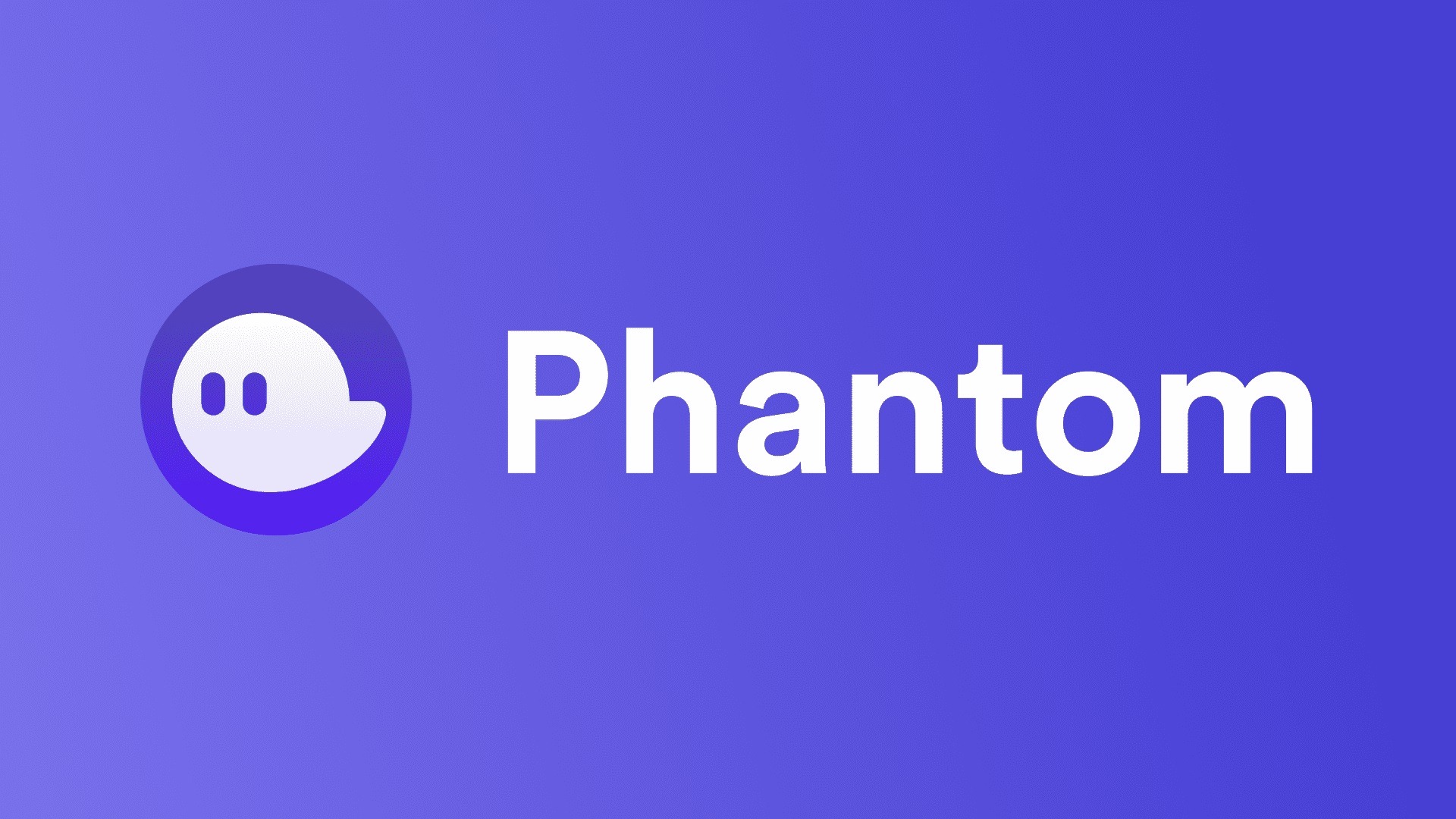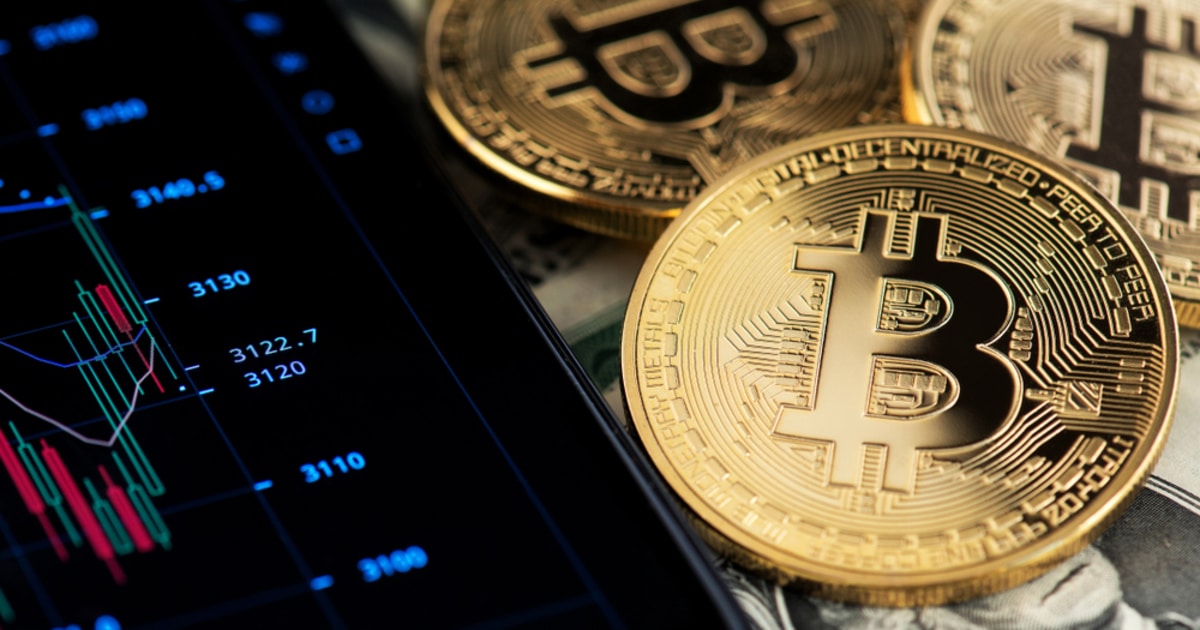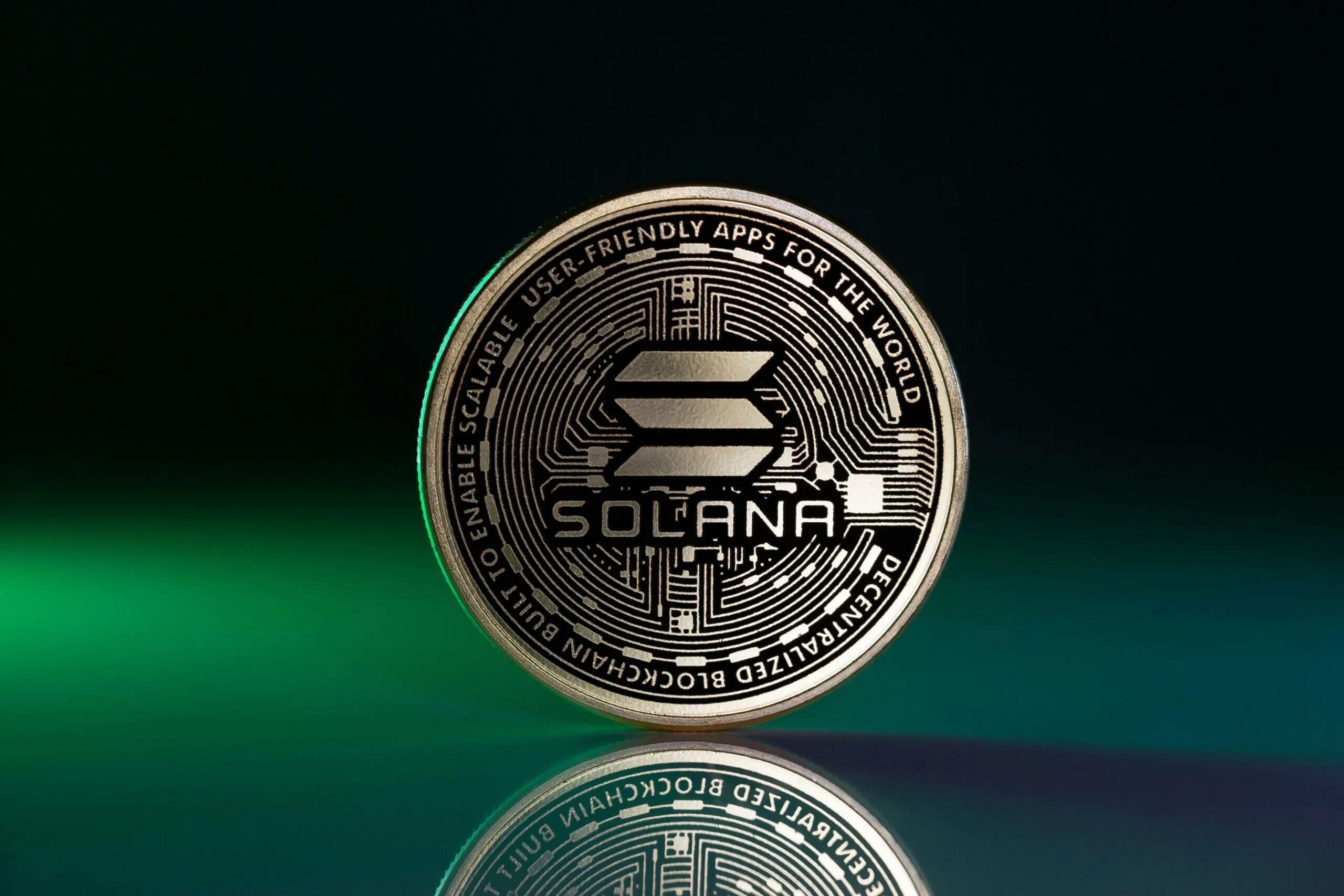Introduction
Welcome to the world of Solana, a fast-growing cryptocurrency that has gained significant attention in the digital market. As more and more individuals seek to invest in Solana, one of the key questions that arises is: Where can I buy Solana crypto?
Fortunately, there are several avenues available for purchasing Solana cryptocurrency. From centralized exchanges to decentralized platforms and even peer-to-peer trading options, the choices are diverse and offer varying degrees of convenience and security.
In this article, we will explore the different options for buying Solana crypto and provide you with an overview of each method. Whether you are a seasoned investor or just getting started with cryptocurrencies, this guide will help you navigate the platforms and find the one that best suits your needs.
Before diving into the different methods, it’s important to note that investing in cryptocurrencies carries certain risks. The cryptocurrency market is highly volatile, and prices can fluctuate rapidly. It’s essential to conduct thorough research, understand the risks involved, and only invest what you can afford to lose.
With that said, let’s explore the various avenues for purchasing Solana crypto and find out which one may be the best fit for you.
Cryptocurrency exchanges
One of the most common ways to buy Solana cryptocurrency is through a cryptocurrency exchange. These online platforms act as intermediaries, allowing you to trade digital assets like Solana for other cryptocurrencies or fiat currencies such as USD or EUR.
There are two types of cryptocurrency exchanges: centralized exchanges and decentralized exchanges.
Centralized exchanges are operated by a specific company and function as a traditional financial institution. They require you to create an account, complete the necessary verification procedures, and deposit funds into your account before trading. Some well-known centralized exchanges that support Solana include Binance, Coinbase, and Kraken.
These exchanges offer user-friendly interfaces, advanced trading features, and high liquidity, making them a popular choice among investors. However, it’s important to note that centralized exchanges also carry some level of risk, such as the possibility of hacks or theft of funds.
On the other hand, decentralized exchanges (DEX) operate on a peer-to-peer network, allowing users to trade directly with each other without the need for a centralized authority. Solana DEXs, such as Serum and Raydium, leverage the Solana blockchain’s high-speed and low-cost transactions to facilitate decentralized trading.
Decentralized exchanges provide a higher level of privacy and security since users retain control of their funds throughout the trading process. However, DEXs may have lower liquidity and less intuitive interfaces compared to centralized exchanges.
When using a cryptocurrency exchange, it’s important to consider factors such as trading fees, security measures, supported trading pairs, and the reputation of the platform. Conducting research and reading user reviews can help you make an informed decision regarding which exchange to use.
Additionally, it’s crucial to store your Solana cryptocurrency in a secure wallet. Exchanges may offer built-in wallets, but it’s generally recommended to use a hardware wallet or a software wallet that allows you to retain full control of your private keys.
Overall, cryptocurrency exchanges provide a convenient and accessible way to buy Solana crypto. Whether you opt for a centralized exchange or a decentralized one, make sure to consider the advantages and disadvantages of each platform to find the one that aligns with your trading preferences.
Centralized exchanges
Centralized exchanges are the most well-known and widely used platforms for buying and selling Solana cryptocurrency. These exchanges are operated by a specific company or organization and act as intermediaries for trading digital assets.
When using a centralized exchange, users are required to create an account and complete the necessary verification procedures, which may include providing identification documents. Once the account is set up, you can deposit funds, such as fiat currency or other cryptocurrencies, and start trading Solana.
Some of the popular centralized exchanges that support Solana include Binance, Coinbase, Kraken, and Bitfinex. These exchanges offer a user-friendly interface, advanced trading features, and high liquidity, making them suitable for both beginners and experienced traders.
One of the advantages of centralized exchanges is the wide variety of trading pairs available. You can easily exchange Solana for other cryptocurrencies like Bitcoin or Ethereum, as well as for fiat currencies like USD or EUR. This flexibility enables users to diversify their portfolios and take advantage of different market opportunities.
Another benefit of centralized exchanges is the enhanced security measures they employ. These platforms invest heavily in implementing robust security protocols to protect users’ funds. However, it’s important to note that no system is entirely hack-proof, so it’s advisable to exercise caution and take additional security measures, such as enabling two-factor authentication and using strong, unique passwords.
Centralized exchanges do charge trading fees, which can vary depending on the platform and the trading volume. It’s crucial to consider these fees when trading on a centralized exchange, as they can impact your overall profitability. Additionally, be aware of withdrawal fees, as some exchanges may charge a fee for transferring your Solana to an external wallet.
When choosing a centralized exchange, it’s recommended to consider factors such as reputation, security measures, supported countries, customer support, and ease of use. Reading user reviews and conducting thorough research can help you make an informed decision.
Overall, centralized exchanges offer a convenient and user-friendly way to buy Solana cryptocurrency. They provide access to a wide range of trading pairs, high liquidity, and enhanced security measures. However, it’s crucial to remain vigilant and prioritize security to safeguard your digital assets.
Decentralized exchanges
Decentralized exchanges (DEX) have gained popularity in the cryptocurrency space due to their commitment to decentralization, privacy, and security. These platforms enable users to trade cryptocurrencies directly with each other without the need for a centralized intermediary.
Different from centralized exchanges, decentralized exchanges operate on a peer-to-peer network, where transactions are facilitated through smart contracts. Solana DEXs, such as Serum and Raydium, leverage the speed and scalability of the Solana blockchain to execute trades quickly and at a low cost.
One of the advantages of decentralized exchanges is that they provide users with greater control over their funds. Users retain ownership of their private keys and trade directly from their wallets, eliminating the need to deposit funds on an exchange. This reduces the risk of funds being held by a third party and minimizes the chances of hacking or theft.
Privacy is another benefit of decentralized exchanges. Since transactions occur directly between users, there is no need to disclose personal information or complete extensive verification procedures. This anonymity can be appealing to those who prioritize privacy and want to maintain control over their financial activities.
However, it’s important to note that decentralized exchanges may have lower liquidity compared to centralized exchanges. This means that there might be fewer buyers and sellers for specific trading pairs, resulting in potentially lower trading volumes and higher price volatility.
In terms of user experience, decentralized exchanges may have a steeper learning curve compared to centralized exchanges. The interfaces can be more complex, and some knowledge of decentralized finance (DeFi) concepts is helpful. Nonetheless, as the popularity of decentralized finance grows, more user-friendly DEXs are being developed, making them more accessible to a broader audience.
When using a decentralized exchange, it’s essential to be aware of potential scams or fraudulent projects. As transactions occur directly between users, there is an increased risk of encountering malicious actors or projects with questionable intentions. Conducting thorough research on the projects listed on the decentralized exchange and relying on user reviews can help mitigate these risks.
Overall, decentralized exchanges provide a secure and private way to trade Solana and other cryptocurrencies. They empower users to retain control over their funds and prioritize privacy. While they may have some drawbacks, such as lower liquidity and a steeper learning curve, decentralized exchanges offer an alternative for those seeking a more decentralized and private trading experience.
Solana DEX aggregators
Solana DEX aggregators are platforms that aggregate liquidity from multiple decentralized exchanges, providing users with access to a wider range of trading options and better prices. These aggregators aim to improve the trading experience on decentralized exchanges by integrating different protocols into a single interface.
By using a Solana DEX aggregator, users can enjoy the benefits of decentralized exchanges, such as privacy, security, and direct ownership of funds, while also accessing increased liquidity. The aggregator searches for the best prices across different decentralized exchanges and routes the trade to obtain the most favorable outcome for the user.
Some popular Solana DEX aggregators include Solana Beach and Solape. These platforms allow users to trade Solana and other tokens across various decentralized exchanges while minimizing slippage and improving price execution.
One of the major advantages of Solana DEX aggregators is the improved liquidity and depth of the order book. By pooling liquidity from multiple sources, aggregators give users the opportunity to access larger trading volumes and minimize the impact of large buy or sell orders on the price of a token.
Additionally, Solana DEX aggregators provide users with a more intuitive and user-friendly interface compared to individual decentralized exchanges. They simplify the trading process by aggregating liquidity, displaying comprehensive charts, and offering advanced trading functionalities, making it easier for both experienced traders and newcomers to participate in the decentralized finance ecosystem.
Furthermore, Solana DEX aggregators contribute to the growth of the Solana ecosystem by increasing the visibility and usage of decentralized exchanges built on the Solana blockchain. This promotes the development of more innovative projects and attracts more liquidity to the network.
However, it’s important to note that using Solana DEX aggregators still involves the risks associated with decentralized exchanges, such as smart contract vulnerabilities and potential scams. It’s essential to conduct thorough research on the protocols and projects integrated into the aggregator to ensure their credibility and security.
Overall, Solana DEX aggregators provide a convenient and accessible way to trade Solana and other tokens across multiple decentralized exchanges. They offer improved liquidity, better prices, and a user-friendly interface, making them an attractive option for traders seeking a seamless decentralized trading experience.
Peer-to-peer trading platforms
Peer-to-peer (P2P) trading platforms have emerged as a popular alternative for buying and selling Solana cryptocurrency. These platforms connect buyers and sellers directly, eliminating the need for intermediaries or centralized exchanges.
With P2P trading platforms, users can find individuals interested in trading Solana and negotiate the terms of the transaction, such as the price, payment method, and transaction details. These platforms facilitate direct communication between buyers and sellers, allowing for a more personalized trading experience.
One of the main advantages of P2P trading platforms is the increased privacy and anonymity they offer. Users can communicate directly with one another, keeping their personal information and trading activities confidential. This can be appealing to individuals who value privacy and want to conduct transactions without sharing personal details with centralized exchanges.
Another benefit of P2P trading platforms is the flexibility in terms of payment methods. Users can agree on various payment options, including bank transfers, digital wallets, or even in-person cash transactions. This allows for greater convenience and caters to the preferences of different traders.
Furthermore, P2P trading platforms often have a decentralized escrow system in place to ensure secure transactions. The platform holds the funds in escrow until the terms of the trade are fulfilled, providing a layer of security for both buyers and sellers. This helps to mitigate the risk of fraud or non-payment.
However, it’s important to note that P2P trading platforms may have lower liquidity compared to centralized exchanges. Finding a match for your trading needs may take more time and effort, especially if you are trading with specific requirements.
When using a P2P trading platform, it’s crucial to exercise caution and conduct due diligence. Verify the reputation and trustworthiness of the counterparty before finalizing a transaction. It’s advisable to use a reputable platform with a robust rating and feedback system to ensure a smooth and secure trading experience.
Overall, peer-to-peer trading platforms provide a decentralized and personalized approach to buying and selling Solana cryptocurrency. They offer increased privacy, flexibility in payment options, and a direct communication channel between buyers and sellers. While liquidity may be lower compared to centralized exchanges, P2P platforms have gained popularity among individuals seeking a more personalized and private trading experience.
Over-the-counter (OTC) desks
Over-the-counter (OTC) desks provide a convenient and efficient way to buy and sell large volumes of Solana cryptocurrency off-exchange. These desks act as intermediaries between buyers and sellers, facilitating OTC trades that are typically conducted outside the regular exchange order books.
OTC desks are particularly useful for institutional investors, high net worth individuals, or traders looking to execute large transactions without impacting the market price. They offer a higher level of privacy and can handle trades that may not be feasible on traditional exchanges due to their size or specific requirements.
When using an OTC desk, buyers and sellers have the advantage of accessing deep liquidity and competitive prices. OTC desks typically have established relationships with multiple liquidity providers, including market makers, institutional investors, and high-volume traders. These connections allow them to offer attractive prices and execute trades quickly.
Additionally, OTC desks provide personalized and tailored services to their clients. They can offer insights, market analysis, and guidance to help navigate the complexities of the cryptocurrency market. OTC desks often assign dedicated account managers who provide personalized support throughout the trading process.
Furthermore, OTC desks provide a higher level of security and trust compared to some other trading methods. They typically require verification and compliance procedures to ensure the legitimacy of the parties involved in the transaction. This reduces the risk of encountering fraudulent or malicious actors in the trading process.
However, it’s important to note that OTC trading may involve higher fees compared to traditional exchanges. OTC desks offer additional services and resources, which come at a cost. It’s crucial to consider and negotiate the fees upfront to ensure transparency and avoid any surprises.
When choosing an OTC desk, it’s essential to consider factors such as reputation, security measures, trading volume, and regulatory compliance. Conducting thorough research and reaching out to multiple OTC desks to compare services and fees can help you find the one that best suits your trading needs.
Overall, OTC desks provide a convenient and efficient way to buy and sell large volumes of Solana cryptocurrency. They offer deep liquidity, competitive prices, personalized services, and enhanced security. While OTC trading may involve higher fees, it is a valuable option for institutional investors and traders looking to execute significant transactions away from the regular exchange channels.
Initial Coin Offering (ICO) platforms
Initial Coin Offerings (ICOs) were a popular fundraising method for startups in the early days of the cryptocurrency market. ICO platforms facilitated the launch of new digital tokens or cryptocurrencies by allowing investors to purchase tokens directly from the project’s team.
However, it’s important to note that the popularity of ICOs has diminished over time due to regulatory concerns and the emergence of alternative fundraising methods such as Initial Exchange Offerings (IEOs) and Security Token Offerings (STOs).
ICO platforms acted as a bridge between project teams and investors, providing a platform to list and promote upcoming ICOs. These platforms offered detailed information about the project, its team members, and the token economics, allowing investors to make informed decisions before participating in the ICO.
ICO platforms also facilitated the token sale process, handling the collection of funds from investors and distributing the newly created tokens once the ICO concluded. Some well-known ICO platforms include Ethereum-based platforms like TokenMarket, ICOBox, and ICO365.
Investing in ICOs carried significant risks, as many projects were in their early stages and lacked a proven track record. It was important for investors to conduct thorough due diligence on the project, analyze the project’s whitepaper and roadmap, and consider factors such as the project’s team, market potential, and regulatory compliance before investing.
While ICOs were once a prominent method for blockchain projects to raise funds, the landscape has evolved, and regulatory scrutiny has increased. Many countries now have regulations in place to oversee token sales, and projects seeking to raise funds through token offerings often explore alternative fundraising methods such as IEOs or STOs.
It’s worth noting that not all projects listed on ICO platforms during the ICO boom era were successful or legitimate. Investors were exposed to a high level of risk, including the possibility of scams or fraudulent projects. Therefore, it’s essential for investors to exercise caution, conduct thorough research, and seek professional advice when considering participation in token sales.
Overall, ICO platforms played a significant role in the early days of the cryptocurrency market by providing a platform for startups to raise funds through token sales. However, with the evolution of regulatory frameworks and the emergence of alternative fundraising methods, the popularity of ICOs has declined. It is crucial for investors to stay informed about the latest market trends and regulatory developments before participating in any token sale.
Conclusion
Buying Solana cryptocurrency involves exploring various avenues to find the method that best suits your needs and preferences. From centralized exchanges to decentralized platforms, peer-to-peer trading, OTC desks, and ICO platforms (which were popular in the past), each option offers its own advantages and considerations.
Cryptocurrency exchanges, both centralized and decentralized, provide convenience and accessibility, with centralized exchanges offering user-friendly interfaces and high liquidity, while decentralized exchanges offer greater privacy and control over funds.
Solana DEX aggregators enhance the trading experience by aggregating liquidity from multiple decentralized exchanges, offering improved prices and a more user-friendly interface.
Peer-to-peer trading platforms provide a decentralized and personalized approach, allowing buyers and sellers to conduct trades directly, with privacy and flexibility in payment options.
OTC desks cater to institutional investors and high net worth individuals, offering deep liquidity, competitive prices, personalized services, and added security.
ICO platforms, despite their past popularity, have seen a decline due to regulatory concerns and the emergence of alternative fundraising methods.
When considering buying Solana cryptocurrency, it’s crucial to conduct thorough research, understand the risks involved, and choose reputable platforms or service providers. Safeguarding your digital assets through secure wallets and adhering to best security practices is paramount.
As the cryptocurrency market continues to evolve, new options may emerge, and existing platforms may enhance their services. Staying informed about the latest trends and regulatory developments will help you make informed decisions and navigate the ever-changing landscape of buying Solana and other cryptocurrencies.
Remember, investing in cryptocurrencies carries risks, and it’s essential to approach it with a long-term perspective and a diversified portfolio. Seek professional advice if needed and only invest what you can afford to lose.

























